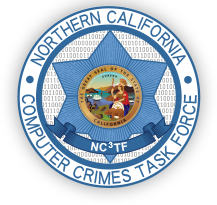Former Sonoma State student charged with stealing posting risque photos of acquaintances
07/12/2013
Former Sonoma State student charged with stealing, posting risque photos of acquaintances
By MARY CALLAHAN
THE PRESS DEMOCRAT
A recent Sonoma State University student is suspected of stealing risque photos from three women who he felt had spurned his advances and then posting the images around the Internet — including adult websites — without the subjects’ knowledge, police said.
The suspect, Paolo Angelo Evangelista Barrameda, 28, even offered photos on Craigslist, pretending to be one of the women and sending them out to anyone who requested them, the Rohnert Park Public Safety Department said.
Barrameda was charged Friday with four felony criminal counts of identity theft and unauthorized use of computer data. He was being held in the Sonoma County Jail on $20,000 bail. He has not yet entered a plea.
The Vallejo man was arrested in large part because the first victim to come forward after learning her private photos had been splashed online had an inkling he might be involved and gave detectives a place to start in their investigation, Detective Sgt. Jeff Nicks said.
Nicks said Barrameda gained access to the private photos, which the women had sent to their romantic partners, by acquiring the passwords to their email accounts.
He allegedly sought to increase the women’s embarrassment by distributing them online, eventually posting the pictures on widely used adult websites, police said.
“When he didn’t get the results that he immediately wanted, he was prepared to go to the next level,” Nicks said.
At least two of the victims knew Barrameda through SSU, Nicks said. They were acquaintances or friends of the suspect at various points but were never romantically involved with him, Nicks said.
When Barrameda’s effort to make more of the relationships failed, he sought revenge, police said.
In one case, he helped a woman work on her computer and installed a keystroke recorder without her knowledge, enabling him to learn her password, Nicks said.
He observed the other victims logging into email or social networking sites, took note of the password and used it to get into some of their accounts, eventually accessing private photos, Nicks said.
Since many people use the same passwords for different accounts was able to navigate freely among some of their email and social networking sites, police said.
In February, when the first victim became aware that she had been exploited, she told police that Barrameda had helped with her computer.
Working with the Northern California Computer Crimes Task Force, detectives confirmed a link between Barrameda and the Internet postings, Nicks said.
A second victim came forward in June, and Barrameda told investigators about the third, Nicks said.
It’s likely the case would not have been solved without having a name to start with, Nicks said.
“The computer task force was almost reluctant to take this on because typically they don’t amount to anything,” he said.
The case also was unusual because a more common scenario for the public airing of highly private photos involves estranged romantic partners, police said.
But even with a suspect identified, the violation may be permanent because of the nature of the Internet.
“We’re working with the high-tech crime task force to see if there’s any way to retrieve any of these photographs,” Nicks said. “But once they’re out there, who knows what people can do with them? Once they’re out there, you know how difficult it is to retrieve them.”
Barrameda is to return to court July 19.
